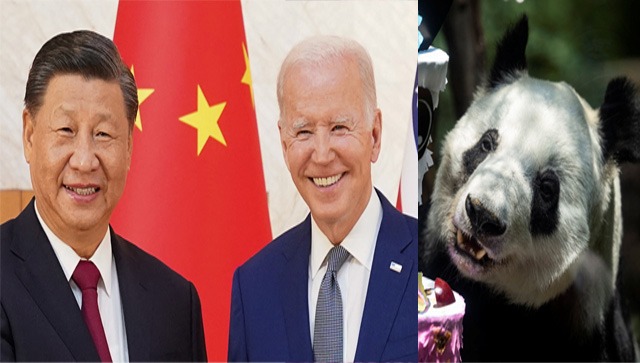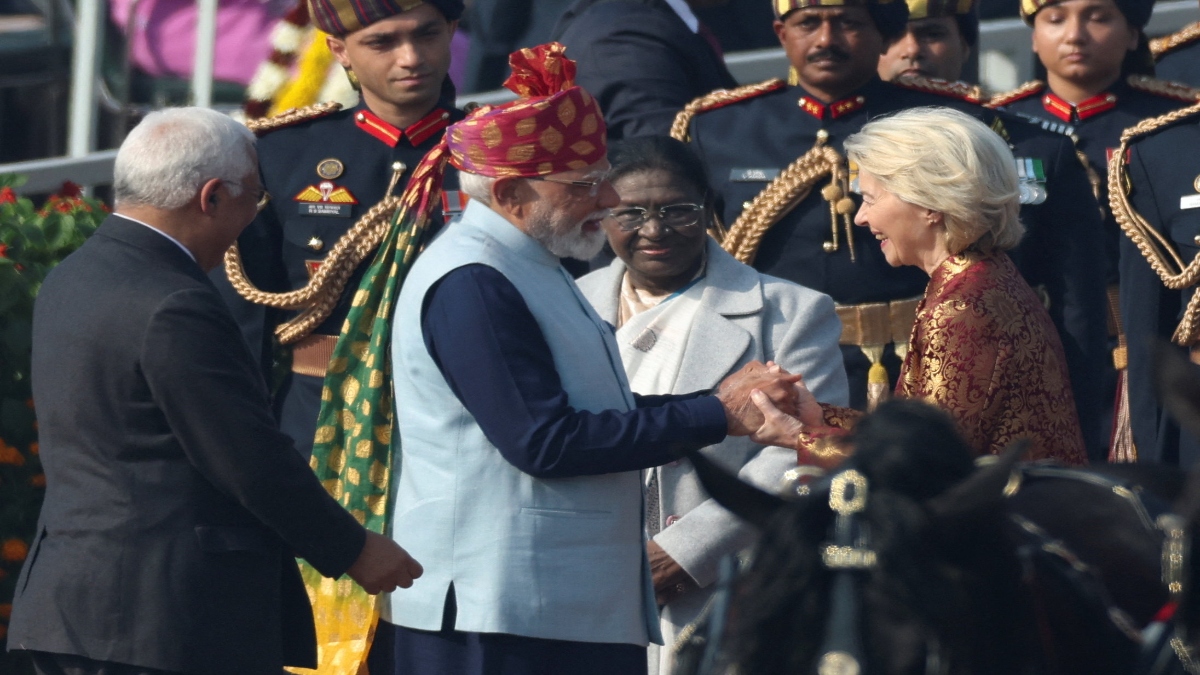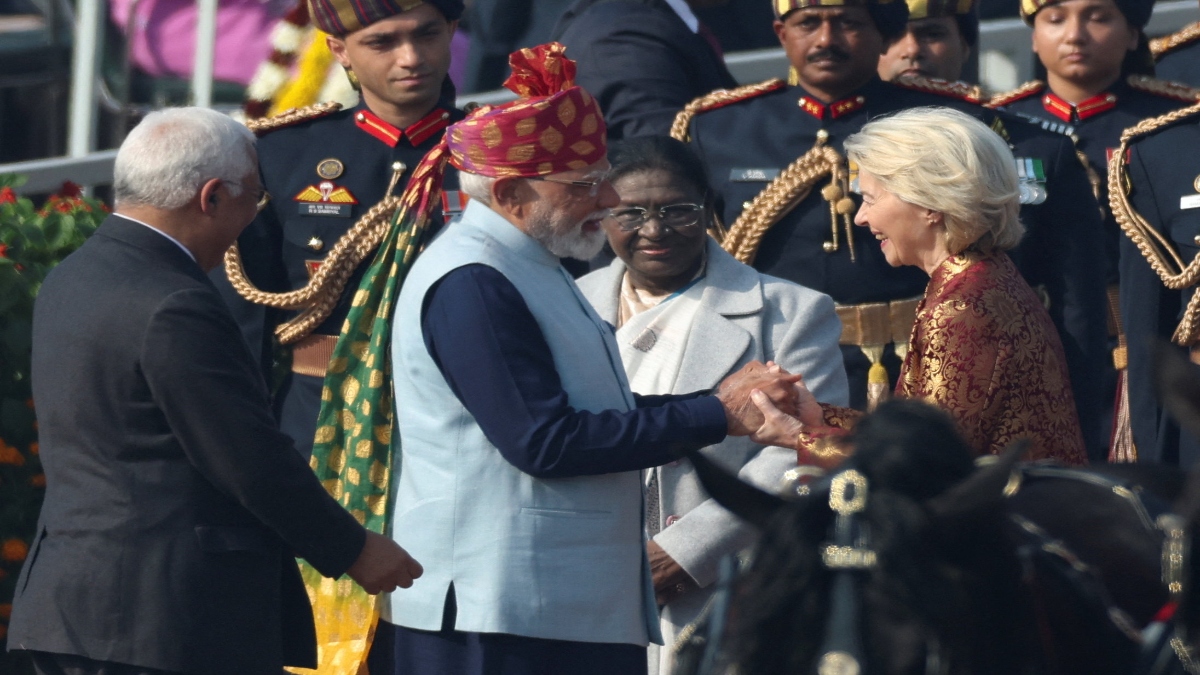Mexico has an unusual reason to expect a tourism boost after 2024: it will be the last country in the Americas that will have a giant panda, Xin Xin. Three of the seven in the US went back to China this week and the other four will follow next year. Importantly, Xin Xin is the only one of four pandas in the world that do not belong to China, as her grandparents Pe Pe and Ying Ying were gifted (not loaned) to Mexico in 1975 as thanks for recognising China’s authority over Taiwan.
Bartering cute pandas for goodwill was a brilliant tactic by China, even if it began with distinct notes of entitlement. Pat Nixon, wife of then US President Richard Nixon mentioned her fondness for the cute bears to Zhou EnLai during the First Couple’s ‘historic’ visit to China in February 1972. The Chinese prime minister insouciantly offered to “give some” to her. Two pandas were duly sent off to the US in April 1972 as a gift and lodged in Washington DC’s National Zoo.
Over 20,000 Americans visited the zoo on the very first day to see the pandas and China suddenly realised the black-and-white bears could be its best ambassadors. Those two pandas had several cubs but none survived; the ones that arrived subsequently were designated as loans not gifts. The caveat was that any cubs would be sent to China—a clause also imposed on other countries that received loaned pandas. And indeed several cubs born in the US were sent to China.
China has loaned pandas to 22 countries, with the latest one being Qatar in 2022. The commercial angle to panda diplomacy cannot be ignored: it costs about $1 million per pair of bears per year and Nikkei Asia estimates China’s panda loans have netted $300 million since 1994. That money is channelled into panda conservation, but it seems like a have-your-cake-and-eat-it-too exercise: other nations are paying for the perpetuation of China’s prime tool of soft power!
Quick Reads
View AllPandas are now a good way to gauge which countries China likes and which it does not as the demand for pandas always exceeds supply, so loans are the equivalent of Most Favoured Nation status. At the height of China’s panda collaboration with the US, there were 15 bears in zoos there. But as relations soured, the number of pandas declined too. When the last giant pandas leave US for China next year, it would emphasise that their ties have reached a nadir.
In that context, it must be noted that India does not have any giant pandas and never did get any. Not even during the height of Hindi-Chini Bhai-Bhai. Not even when the Indian Communist parties that admire China have been in power in West Bengal and Kerala. When the Tang dynasty sent envoys to Kannauj between 641 and 658 CE, pandas are not known to have been part of the “gifts” either, or else the visiting Buddhist monk Xuanzang would surely have mentioned it!
Interestingly, Pakistan does not have any pandas though Lahore Zoo announced plans to “rent” some back in 2011 but never followed through. Now Pakistan cannot afford any, but why it was never gifted pandas along with other Chinese largesse is a mystery. But Chinese president Xi Jinping (often likened to another bear, Winnie the Pooh) loaned a pair of pandas to his “good friend” Vladimir Putin in 2019 for 15 years. And this month the pandas had their first cub.
North Korea also has no giant pandas, but its southern sibling does. Actually, South Korea now has five, as twin cubs were born in July 2023 near Seoul. But the baby pandas are contractually bound to be sent to China, as also their older sister. Foreign zoos, in fact, have to pay a baby tax of around $2 lakh to China as well. And there’s an insurance payout clause too if a panda dies abroad, as happened in a Thai Zoo this April. Thailand had to pay $430,000 to China.
Piquantly, the only pandas besides Xin Xin not “owned” by China are in Taiwan. China must wish it had not gifted two pandas Tuan Tuan and Yuan Yuan (Tuan Yuan incidentally means reunion) in a moment of bonhomie in 2008. Tuan Tuan passed away last year but Yuan Yuan and the couple’s daughters Yuanbao and Yuanzai, born in Taipei Zoo, remain there and belong to Taiwan. But if China has its way on the issue of reunification, these pandas will go to them too.
Arguably, there are other cute bear species: polar bears for instance. However, despite their cuddly appearance they have not achieved the iconic status of giant pandas. It helps that giant pandas are only found in one country and hence the world has no choice but to accept China’s “ownership” and loan clauses. Polar bears, on the other hand, are spread across the far north, from US (Alaska), Canada and Greenland to Norway and Russia so no nation can call the shots.
Koalas are possibly as irresistibly cute as giant pandas but they are not bears; they are marsupials. Like pandas, though, they are found only in one country: Australia. And like in China, no one can own a koala as a pet in Australia. Only zoos are permitted to have them, as well as care shelters for injured or ill animals. Koala diplomacy—loaning them to other countries—has been practised by Australia for many years but not as effectively or as lucratively as China.
One reason is that zoos abroad got more than a single pair of koalas initially, allowing for successful breeding programmes in the past few decades. And as those foreign zoos did not sign up for any cub return clause either, soon they did not have to depend on Australia for more koalas. China cleverly restricted supply to just one pair from the outset, thereby limiting breeding to a single generation, as any further cubs would be inbred. If only Australia had such foresight!
Panda fans in the US will be waiting for President Joe Biden’s meeting with Xi Jinping in San Francisco next week on the sidelines of the Asia-Pacific Economic Cooperation summit. But given China’s frostiness towards recent US overtures, the chances of the four pandas in Atlanta Zoo staying in the US beyond 2024 look slim. After all, during former President Donald Trump’s trade war with China in 2019, two pandas were even prematurely “recalled” from San Diego Zoo.
If all does not go well in San Francisco, then after 2024 Mexico—and Xin Xin—might become the biggest beneficiaries of Americans pining for pandas.
The author is a freelance writer. Views expressed in the above piece are personal and solely that of the author. They do not necessarily reflect Firstpost_’s views._
Read all the
Latest News,
Trending News,
Cricket News,
Bollywood News,
India News and
Entertainment News here. Follow us on
Facebook,
Twitter and
Instagram.


)

)
)
)
)
)
)
)
)



